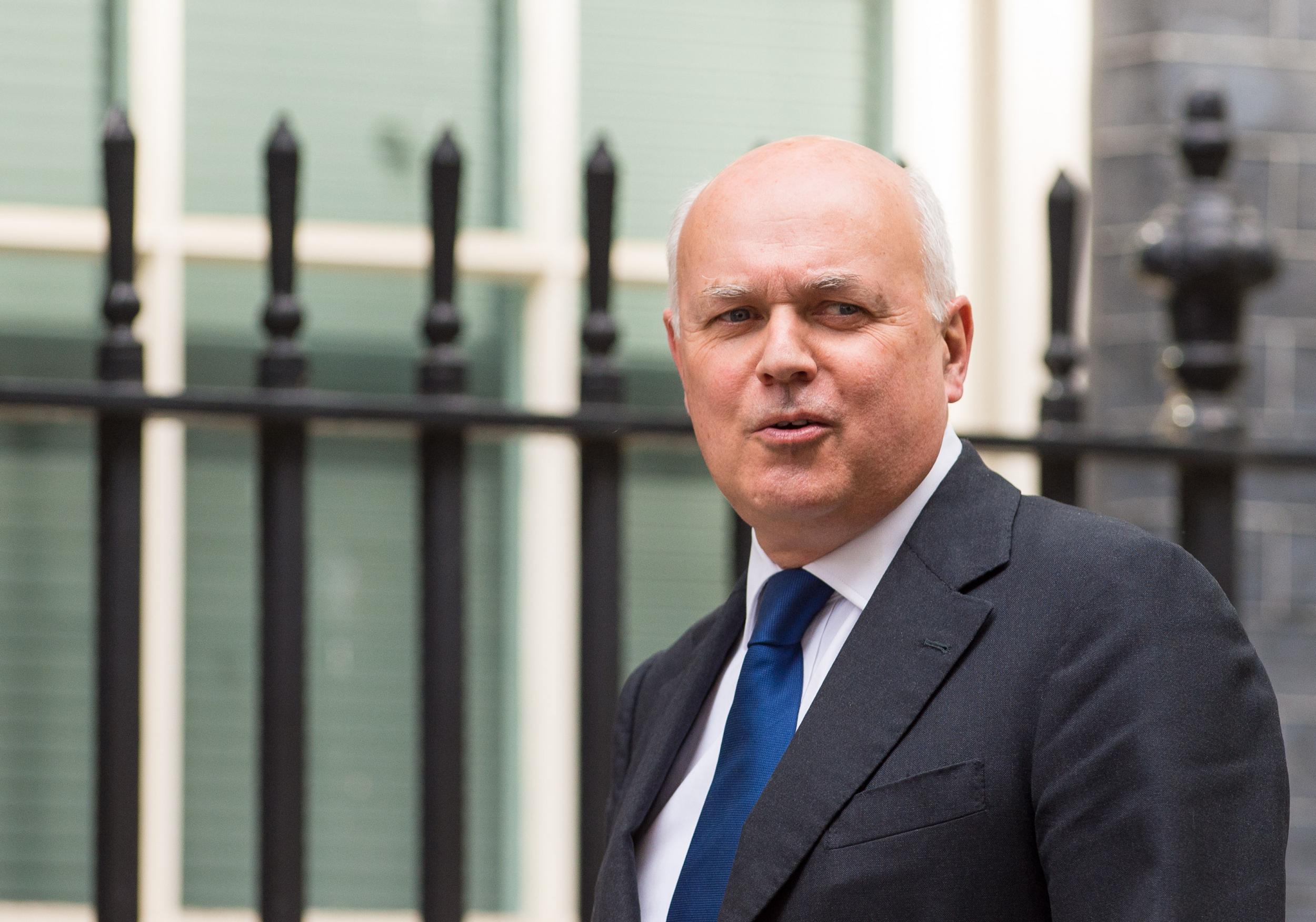Iain Duncan Smith's Universal Credit postcode lottery will make some families £3,000 worse off than others
Independent research exposes the disparity that will be created across the country when cuts to in-work support for Universal Credit claimants takes effect for 500,000 recipients in April

Your support helps us to tell the story
From reproductive rights to climate change to Big Tech, The Independent is on the ground when the story is developing. Whether it's investigating the financials of Elon Musk's pro-Trump PAC or producing our latest documentary, 'The A Word', which shines a light on the American women fighting for reproductive rights, we know how important it is to parse out the facts from the messaging.
At such a critical moment in US history, we need reporters on the ground. Your donation allows us to keep sending journalists to speak to both sides of the story.
The Independent is trusted by Americans across the entire political spectrum. And unlike many other quality news outlets, we choose not to lock Americans out of our reporting and analysis with paywalls. We believe quality journalism should be available to everyone, paid for by those who can afford it.
Your support makes all the difference.Iain Duncan Smith has been accused of ushering in a new postcode lottery by pushing ahead with cuts to Universal Credit, which will see some benefit recipients up to £3,000 worse off next year than other claimants in exactly the same circumstances, according to new research.
Tax credits will be gradually replaced by the in-work support element of Universal Credit, which will combine a number of different benefits into one payment and is being rolled out to 500,000 new claimants in April.
George Osborne announced he had abandoned plans to impose £4.4bn of cuts to working tax credits from next April but these cuts will take effect for thousands of families on Universal Credit next year.
This means that a single mother of two working full-time on the minimum wage and claiming Universal Credit will have a net income that is £2,981 lower next year than someone in the same circumstances who is claiming tax credits.
Meanwhile a single parent of two on a salary of £18,000 a year will see their overall income fall by £2,601 next year if they are on Universal Credit.
The region that will be hit hardest by the disparity will be the North West, with more than half of Universal Credit claimants living there.
The research, conducted by the House of Commons Library, has led Labour to call for the Government to mirror its tax credit cuts reversal by scrapping its plans to cut the in-work support for Universal Credit claimants.
Mr Duncan Smith has insisted that the £69m a-year Flexible Support Grant will soften the blow for those affected by the cuts to in-work support but even if the entire fund is paid to Universal Credit claimants it will still fail to cover the estimated £100m cuts to families next year.
The Office for Budget Responsibility, the Government’s spending watchdog, has estimated that the cost of cuts to in-work support for families will reach £3.2bn in 2020, when Universal Credit is due to be rolled out to all claimants.
This will see 2.6m working families worse off by £1,600 in 2020, according to the Institute for Fiscal Studies.
Owen Smith, the Shadow Work and Pensions Secretary, accused Mr Duncan Smith of creating a discriminatory welfare system.
“The net result of Osborne’s decision to fund his backtrack on tax credits through a raid on Universal Credit has been to create an unfair, postcode lottery in support for low and middle-waged families," he told The Independent.
"When the cuts start to bite next April some families on Universal Credit will be up to £3,000 worse off than their neighbours in exactly the same circumstances but still on Tax Credits. And by 2020 as many as 2.6 million families will be an average of £1,600 worse off than they would have been before the cuts.
“Tory MPs who thought George had got them off the hook on Tax Credits are slowly realising they were the victims of his latest sleight of hand and that they will still go into the next election with thousands of constituents worse off thanks to his £10 billion cut to the Universal Credits Work Allowance.”
Currently 54 per cent of the 141,000 Universal Credit claimants are in the North West, meaning the cuts will hit claimants in the region the hardest.
Scotland makes up 10 per cent of Universal Credit claimants, as do claimants in the Midlands.
Meanwhile claimants from London, the south east and the south west make up just 13 per cent of Universal Credit recipients.
A Department for Work and Pensions spokesman insisted that the move to Universal Credit would create an even bigger incentive for people to work. “Universal Credit is an entirely different system to the current one – with none of the cliff edges of tax credits," the spokesman said.
"Under UC, claimants are more likely to move into work, earn more and look to work more hours.
“There will be no cash losers when people are moved onto Universal Credit and, in addition, people will be able to get additional support through the Flexible Support Fund that is not available to tax credit claimants.”
Join our commenting forum
Join thought-provoking conversations, follow other Independent readers and see their replies
Comments